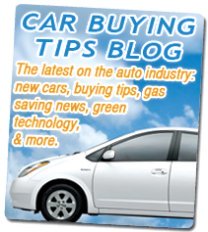Four Hidden Costs of Car Buying
Some people think that buying a car is like going to see a magician- you should expect to be tricked. But with the right information, you can have a better idea of what you should expect to pay (and what you shouldn’t).
If you’re in the market for a new car, tuck, or SUV, read on for tips on the hidden fees you may encounter.
Finance charges
If you’re like most buyers, you don’t have the full purchase price of a car available in cash. That means that you’ll end up paying more than the purchase price. How much depends on the interest rate you qualify for, the amount of your down payment, and the length of time it takes to pay off the loan.
Because financing is so important to the total cost of the car, experts suggest that you shop around for financing before you head to the dealership. That way, you can tell whether the dealer is offering favorable terms or if you should get financing elsewhere.
Fees
The fees charged for buying a car depend on your state and whether the car is new or used. Generally, there are more fees on used cars. Some fees you may be asked to pay include:
-delivery fee
-destination fee
-vehicle registration fee
-title fee
-license fee
-documentation fee
-compliance fee
-emissions testing fee
-floor plan fee
-advertising fee
-dealer preparation fee
Don’t be afraid to ask the dealer to remove some of these fees. The government requires the destination and delivery fees, so these might be difficult to remove. Buy if the dealer thinks you’re about to walk away, they might give you a break on some of the others, or reduce the purchase price to compensate.
Add-ons
The finance manager is just another salesperson at the dealership, and may try to upsell you. He or she may offer things like extended warranties or credit insurance, which add to the cost of financing. Remember, you can always purchase extra coverage later one once you see how the car operates (often at a lower cost). Experts also find that tire-rotation and iol change fees are too expensive, even when bundled.
Buying the wrong car
Before buying a car, particularly a used car, make sure to do your research. Vehicle history reports are available from several online sources. You can get information like damage history and how many previous owners the car has had. You can also assess the chances that the odometer has been rolled back by a sketchy seller.
You also might save by looking at dealerships farther from home. It might take longer, but the extra trip could save you thousands. Cars are often cheaper in the city due to competition.
Whether you choose to go with a new or pre-owned car, you can find quotes from competing dealers at BuyingAdvice.com. Request your free quotes today!

